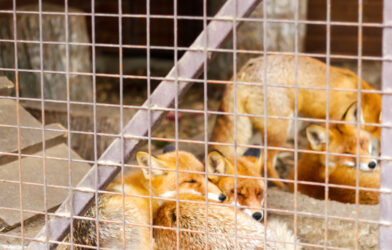Kentucky Fried Chicken has built its reputation on crispy chicken and global recognition. For decades, the chain has expanded steadily across Europe, adapting its menu and business model to a wide variety of markets. Recently, however, its European presence has been tested. Allegations of poor hygiene, regulatory investigations, and franchise instability are putting parts of KFC’s network under serious strain. The most striking examples come from Denmark and Czechia, two countries where the brand’s future has become a matter of public debate.
The Danish Collapse
Denmark represents the most dramatic setback for KFC in Europe. In the summer of 2025, the Danish Veterinary and Food Administration carried out inspections across all 11 KFC outlets in the country. None of the restaurants received a top rating and several were judged to be in serious violation of hygiene standards. Media reports further alleged that employees had extended expiry dates on chicken products and ignored proper storage practices.
Following these revelations, KFC’s European headquarters terminated its agreement with the Danish franchise partner and ordered a complete closure of operations until a new operator could be found. Despite these orders, some outlets initially continued trading before the issue was forced. Soon after, the Danish franchise company filed for bankruptcy, putting hundreds of jobs at risk. At present, the entire KFC network in Denmark remains closed and any potential return will require a fresh operator and a full rebuilding of public trust.

Scrutiny in Czechia
In Czechia, KFC has not collapsed, but the chain is facing its most intense regulatory pressure in years. During inspections in September 2025, authorities discovered expired meat in a branch in Liberec. This discovery triggered a formal investigation under Czech food law. Earlier reports by investigative journalists had already raised questions about the relabeling of meat in other outlets.
KFC’s local operator AmRest has defended its practices, stressing that its kitchens are regularly audited and that the Liberec case was an isolated failure. Regulators, however, have expanded their inspections, visiting dozens of branches and documenting several additional violations, most of them less severe but damaging to the brand’s image, nonetheless. While the restaurants remain open, KFC in Czechia must now convince both authorities and customers that its food safety protocols are airtight.
Growth in Other Countries
The difficult headlines from Denmark and Czechia risk creating the impression that KFC is pulling back from Europe altogether. The broader picture is more complex. In several countries the chain is actively investing in growth. In the United Kingdom and Ireland, KFC has announced plans to invest more than one and a half billion pounds over five years with the goal of opening five hundred new restaurants and creating thousands of jobs. In Germany, franchise partner Collins Foods is treating the country as a growth engine, aiming to establish dozens of new outlets in the next few years. In Türkiye, KFC is preparing for a nationwide relaunch under a new operator, a signal that the brand continues to see opportunity in emerging European markets.

Why Europe is Challenging
Several structural factors explain the uneven picture. The franchise model makes local execution decisive. When a master franchise partner mismanages operations, as in Denmark, the entire national network can collapse almost overnight. Food safety is another critical factor. In markets with strict regulations and vigilant consumer watchdogs, even a single incident of expired or mishandled meat can set off weeks of inspections and damage reputation.
Rising costs also put pressure on margins. Energy prices, labor costs, and the price of poultry have all increased, making weaker stores more vulnerable. At the same time competition has intensified. Local fried chicken chains and delivery focused start-ups are attracting younger customers, forcing KFC to adapt more quickly. Finally, consumer expectations are changing. Customers increasingly expect transparency, ethical sourcing, and higher quality standards. Meeting those expectations requires both investment and operational discipline.
Scenarios for the Future
KFC is not preparing to abandon Europe. What it is doing is reshaping its strategy, pruning where necessary and doubling down where profitable. Denmark shows how quickly a network can collapse when standards slip. Czechia shows how regulators and media scrutiny can place an entire brand under pressure.
The European future of KFC will not be determined by global brand strength alone but by the everyday execution of food safety, customer service, and franchise management. If those elements are fixed, KFC will continue to be part of the European fast-food landscape. If not, more countries may follow Denmark’s path.














